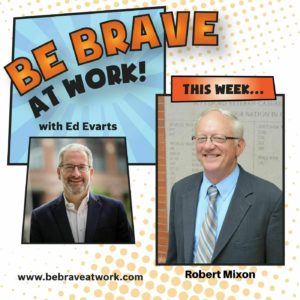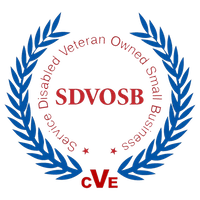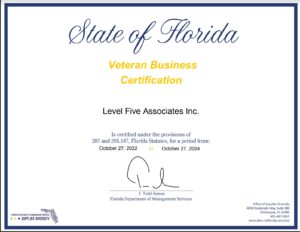 This past fall, I had the privilege of being a guest on Ed Evart’s podcast, “Be Brave at Work;” a podcast devoted to helping people take “the next step” in their workplace.
This past fall, I had the privilege of being a guest on Ed Evart’s podcast, “Be Brave at Work;” a podcast devoted to helping people take “the next step” in their workplace.
During the podcast, we started by touching on some ‘lighter’ workplace-related topics, including:
- Transitioning (or not transitioning) from one position or industry to another
- The comparison of a career in military vs. forging a career in the corporate world
- Why “Setting the Azimuth” is the first of the Big Six Principles.
Then, our discussion took a turn as we dove into what it means to be brave in the workplace.
As many of you know, The Big Six Principles we teach at Level Five Associates were instrumental in my own transition from the were a product of learning through the transition of military to corporate environment and then to the world of entrepreneurship. In fact, I think it’s safe to say that a good part of these principles evolved and continued to take shape as I moved through each of these transitions and reflected back on my experiences and observations.
My host, Ed, focuses his work on helping people be braver at work, and I truly enjoyed hearing his views on how bravery is really a two-sided relationship (as I’m sure you will enjoy it too). For example, he reminds us that being great at work could be something as common as saying something that may be difficult to say or doing something that might be difficult to do. And then on the other hand, being receptive to hearing something that was difficult to hear or experiencing something that is difficult to experience also requires bravery.
As leaders, it’s our responsibility to create an atmosphere or environment that supports our teams and encourages team members to be comfortable sharing and receiving information and experiences. Ed and I dove in and talked at length about the role bravery, courage, and leadership play in the workplace and the parallels of the Big Six with the work that Ed is doing. I found it fascinating. And I hope you will too.
We also took a few minutes to talk about effective listening skills, accountability, self-control, and team empowerment.
I encourage you to take a listen and learn more about the good work Ed is doing, below.
Enjoy the journey!
Did you find this post beneficial? If so, please consider sharing it with your audience using one of the choices below. It’ll just take a second, but could improve someone’s work habits for a long time to come.





